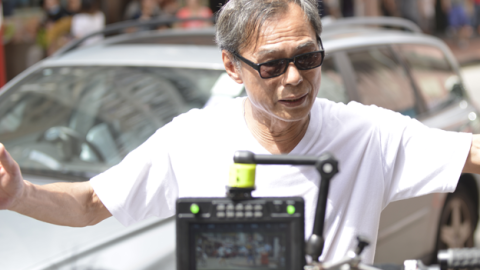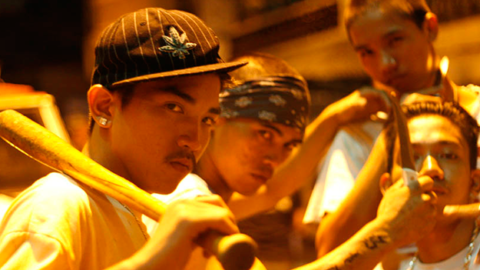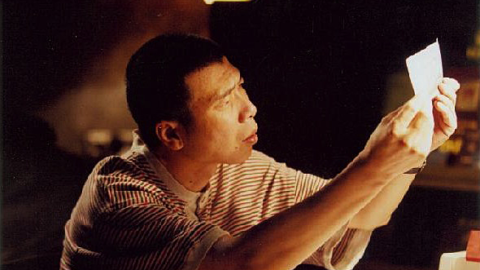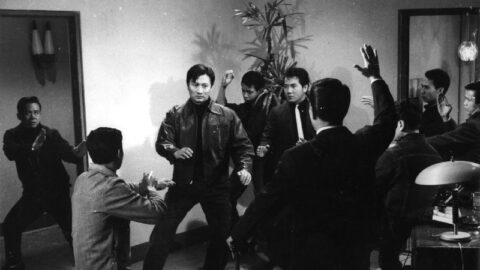Kaiju Shakedown: Danny Lee
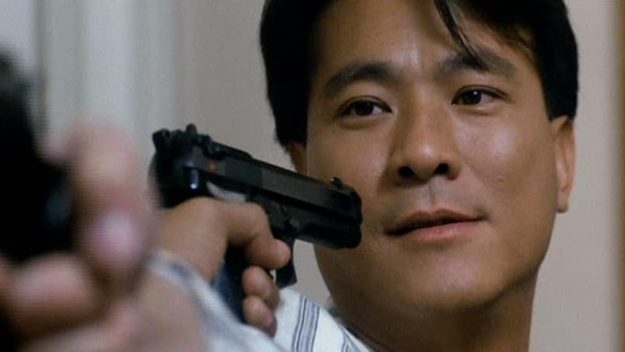
The Killer
Danny Lee finds you disappointing. You don’t disgust him, because he’s learned to expect the worst, but your existence reminds him of how low we as a species can get. Look at his face. In the 145 films he’s appeared in since 1971, Danny Lee is annoyed, exasperated, skeptical, wryly amused at the futility of the human condition. He raises his eyebrows to convey “You must be joking?” or he gnaws the inside of his cheek to remind himself that you’re not worth the bullet. In the rare moments when he smiles, it’s a cynical half-twist of his lips. Like a streetwise cop a year before retirement, Danny Lee has seen it all, and nothing impresses him anymore.
Danny Lee plays cops. Not just one or two cops—all the cops. He’s the cop who goes after Chow Yun-fat in The Killer (89), then he took over the cop role in Tiger on Beat 2 (90) after Chow Yun-fat didn’t return for the sequel. He’s the cop who catches Simon Yam’s serial killer in Dr. Lamb (92), and he’s the cop who takes down the cannibalistic Anthony Wong in The Untold Story (93, aka Eight Immortals Restaurant: Human Meat Roast Pork Buns). He won his only acting awards (a Golden Horse and a Hong Kong Film Award) for playing a cop in Law with Two Phases (84), a movie about cops that he also wrote and directed. Hong Kong cops shower him with awards, and call him “Lee Sir.” In scripts, writers name his character “Officer Lee” or “Lee Sir.” As one director put it: “He actually thinks he’s a cop.”
Which makes it surprising that he never actually applied to join the police force. His family moved to Hong Kong from Shanghai in 1955 when Lee was two, and at 17 he enrolled in the Shaw Brothers’ actor-training program. The following year he appeared in River of Fury (73), as “hero on raft.”* Despite having always wanted to be a cop, Lee said in an old interview: “I didn’t take any of the tests to pass as a police officer, and the salary I was making was more than what it took to be an officer.” Lee Sir has always been practical, and it contributes to his onscreen persona as a cop who’s not so much an enraged Dirty Harry seeking street justice but a mid-level civil servant who’s determined to do a good job.
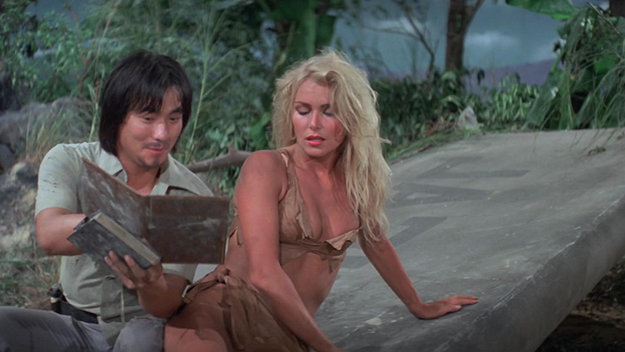
The Mighty Peking Man
Despite being best known today as a cop, Lee Sir started out as plain old Danny Lee, starring in three of Shaw Brothers’ weirdest productions. Each one attempted to cash in on different trends but got it so wrong they all wound up as gloriously berserk misfires. First up was The Super Inframan (75), Shaw’s knock-off of the Japanese superhero shows like Ultraman and Himitsu Sentai Gorenger that clogged the airwaves and sold millions of toys. Hiring Japan’s Ekisu Productions to build rubber monsters and costumes, Shaw threw Danny Lee into the lead role as “The Man Beyond Bionics” and pitted him against the half-naked Princess Dragon Mom, an evil but sexy witch guaranteed to induce Freudian crisis in small boys. Making absolutely no sense whatsoever, The Super Inframan was dubbed into English and released all over the planet, prompting Roger Ebert to write: “When they stop making movies like Infra-Man, a little light will go out of the world.”
Next, Shaw decided to piss all over the grave of Bruce Lee. They’d always been annoyed that they’d lost out on Lee to rival studio Golden Harvest, and after Lee’s death in 1973 they saw flocks of fly-by-night film companies cashing in on his legacy with Bruceploitation pictures like Bruce Takes Dragon Town (74) and Bruce Lee Against Supermen (75), and realized that vengeance was a dish best served at a profit. Hiring Danny Lee to play Bruce, they paid Betty Ting Pei, the woman who was with him when he died, to star in the film Bruce Lee & I (76) which purported to tell “her” story—but was just an excuse to portray Bruce Lee as a womanizing druggie with a violent temper and a giant gold trampoline for a bed. Almost feral in its mean-spirited tawdriness, Bruce Lee & I is a cocktail of crap spiced with a dash of score-settling. It’s hard to believe that a major studio would attach its name to a movie that treats a dead, much-loved entertainment figure with so much contempt.
Completing this twisted trinity was The Mighty Peking Man (77), inspired by Dino De Laurentiis’s King Kong remake. Danny Lee plays an explorer in Hong Kong who has just lost the affections of his girl (to his brother, no less) and wants to get away. He gets his chance when he’s taken on an expedition to find the legendary Peking Man in India. After being abandoned by his expedition, Lee Sir finds the Mighty Peking Man living in harmony with his blonde girlfriend (Evelyn Kraft). She and Lee Sir fall for each other, and he convinces her to let Mighty Peking Man get captured and shipped back to Hong Kong as a circus attraction. But when the Mighty Peking Man sees Kraft being raped by an unscrupulous producer in a skyscraper, he goes bananas and tears the city apart in a Mighty Peking Rampage that only ends when everyone is dead.
https://www.youtube.com/watch?v=WpaBkUHAX_E
Law with Two Phases
Post-Shaw, Lee Sir made some action movies, but it was Law with Two Phases that would define him as a cop in the eyes of Hong Kong audiences. Even though he played a thief in Ringo Lam’s City on Fire (87), Lee would start his own production company and produce, direct, and star in a huge number of cop films. Most of them followed the same basic formula of competent scripts coupled to workmanlike production values and slightly above average action sequences to form a sort of canon of B-movies: The Criminal Hunter (88), Thank You, Sir (89), Unmatchable Match (90), Red Shield (91), Blue Lightning (91), and many, many more. Some are excruciating, like Road Warriors (87), which is about motorcycle cops ticketing speeding motorists. Others, like The Big Score (90) directed by Wong Jing, manage to stuff so many genres into their 106-minute run-time that Lee’s performance starts to slip into self-awareness.
Lee starred in John Woo’s The Killer, over one investor’s objections, because Woo and producer Tsui Hark believed that Hong Kong people would automatically accept Lee Sir as a good cop. Ringo Lam cast him as a cop in his squib-tastic, big-budget international action film Undeclared War (90) opposite Olivia Hussey. It was also during this period that Lee Sir “discovered” Stephen Chow and cast him in the Eddie Murphy role of Final Justice (88), a riff on 48 Hours that Lee Sir produced and co-starred in; Chow won a Golden Horse for Best Supporting Actor.
Lee Sir was a savvy producer, and as the Category III craze took off and audiences began seeking more lurid on-screen entertainment, Lee Sir produced and/or starred in several Cat III true-crime movies. In Dr. Lamb, Simon Yam chews up the screen as the taxi-driving serial Lam Kor-wan, who butchered four women in the two-room apartment he shared with his entire extended family. The movie ends with Yam gibbering in his cell like a lunatic as Lee Sir sadly shakes his head and walks away. There was Run and Kill (93), Portrait of a Serial Rapist (94), and Water Tank Murder Mystery (94), which were almost like true-crime episodes of the Twilight Zone with Lee Sir presiding over the proceedings like Rod Serling with a badge.
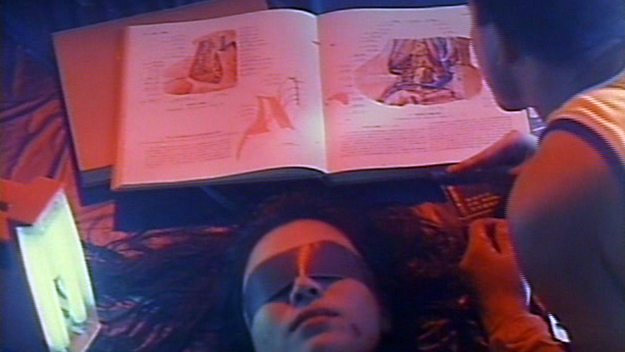
Dr. Lamb
As much as he worships cops, Lee Sir has played corrupt cops in movies like Powerful Four (92), and a film like Organized Crime and Triad Bureau (94) displays as much sympathy for the triad bosses on the run as for the cops pursuing them. But occasionally he turns in a film that’s borderline fascist: in Twist (95), the police solve a victimless bank robbery by raping the brazen burglar’s girlfriend with a condom stuffed with ice.
Lee Sir seems to have retired at some point a few years ago, but he kept making cop movies right up until the end, appearing in films that tweak his image, like Walk In (97), in which he plays a catatonic coward whose body is possessed by the spirit of a tough cop, and the lighthearted Shark Busters (02) where he plays a cop whose debts make front-page news and scandalize the department. But through it all, Lee believed that he was a cop, and he refused to appear in movies that made cops look bad.
When director Herman Yau asked him to play the top cop in The Untold Story (93), a Category III true-crime gut-cruncher about a cannibalistic murderer who turned a family into roast pork buns he fed to the police, Lee drew the line. It wasn’t so much the close-ups of cops chowing down on human pork buns that bugged him, but the fact that his inspector character appeared in every scene with a different busty girlfriend on his arm (not to mention the constant lowbrow sexual shenanigans by his team of detectives). Hong Kong cops don’t act stupid like this, Lee said. How could they ever solve any cases this way? Ah, the director explained. That’s because these aren’t Hong Kong cops. They’re from Macau.
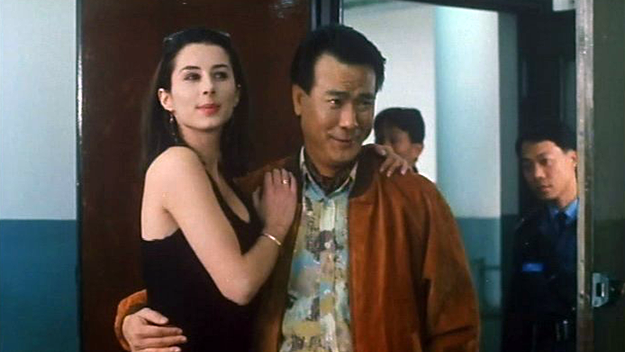
The Untold Story
That made sense to Lee Sir, and he took the part and cashed the check. Just another pragmatic decision in the long career of Hong Kong’s top movie cop.
LINKS! LINKS! LINKS!
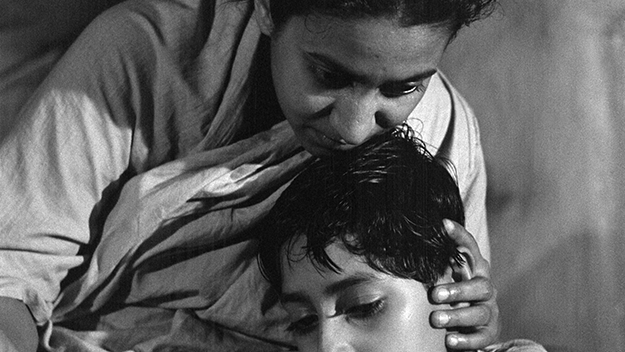
Aparajito
… Satyajit Ray’s Apu Trilogy is rated as one of India’s greatest films and a treasure of world cinema. The Criterion Collection has painstakingly commissioned a 4K restoration of the movies and sent them on an ongoing tour of theaters around the country. Now they’re finally making it to Blu-ray on November 17 of this year. I give Criterion a hard time for their lack of focus on Indian movies, but when they do something right they should get the praise they deserve, and this set is unquestionably a good thing.
… Toho has tapped Shinji Higuchi—the special-effects maestro who directed Attack on Titan, currently one of Japan’s biggest hits of the year, with its second part scheduled for release there this month—to revive its moribund Godzilla franchise in the wake of the successful Hollywood version. In an interview with the Japan Times, he discusses his plans as much as the studio will allow, promising a combination of practical and digital effects for the monster and insisting that he’ll return Godzilla to its “terrifying” roots.
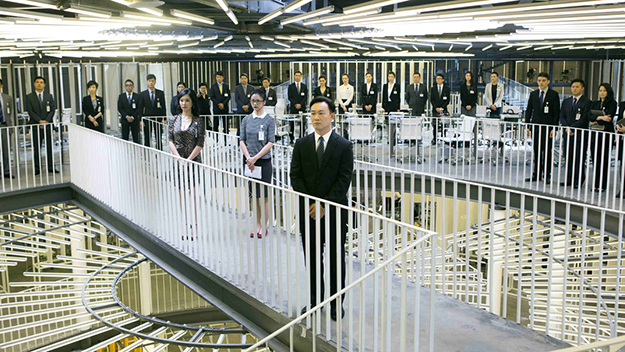
Office
… Johnnie To’s musical, Office, is playing at a few film festivals around the world, where it’s been one of the most hotly anticipated titles. But in China where the film just came out, it’s not doing so well. The opening take was $6.4 million, putting it in fourth place at the box office, far behind To’s last Mainland movie Don’t Go Breaking My Heart 2 (14), which earned $22.4 million in the same number of days.
… Ricky Wong may have been sucker-punched by the Hong Kong government when he tried to start his own, brand-new TV station, but one of its series that was supposed to air on HKTV, the cop drama Night Shift, is finally getting broadcast. You can read more about it here.
… Jackie Chan, King of the Segway, is still the hardest-working man in show business.
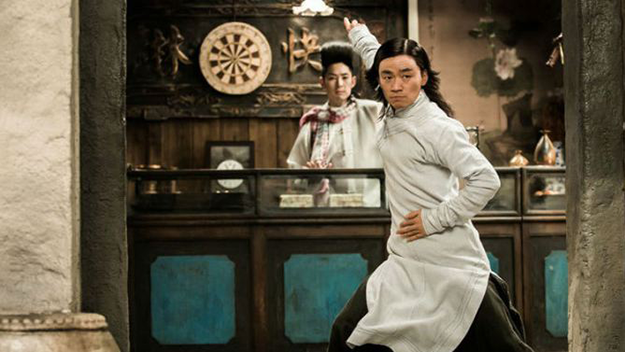
Monk Comes Down the Mountain
… A Tale of Two Trailers: Chen Kaige (Farewell My Concubine) has a new movie out called Monk Comes Down the Mountain, a martial-arts flick with an all-star cast that includes Aaron Kwok, Yuen Wah, Chang Chen, Jaycee Chan, and anchored by the multitalented Wang Baoqiang. Based on a novel by wuxia writer Xu Haofeng (who wrote the novel on which Wong Kar Wai’s The Grandmaster is based), the reviews are good. If you want to get a sense of what kind of movie it is, you can totally confuse yourself by watching these two trailers. In one, it’s a dead-serious martial-arts action film. In the other, it’s a light-hearted romantic comedy. Guess which one is aimed at the local Chinese audience.



